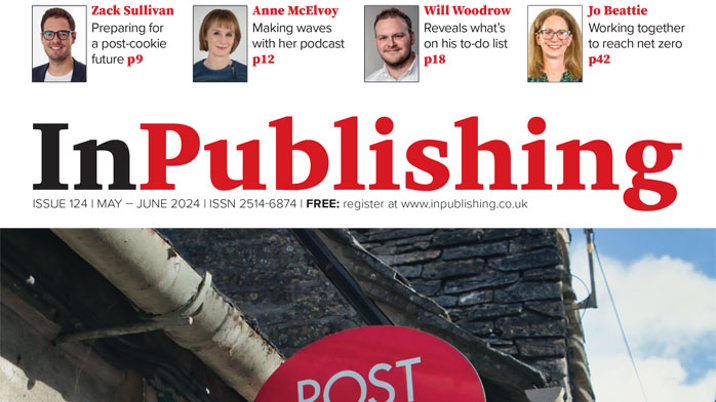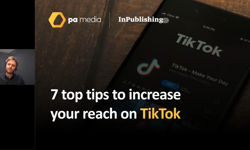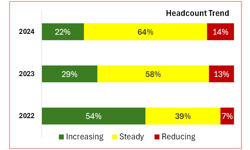
The May / June issue of InPublishing magazine was published recently. Here are some of my takeaways from it:
- Police-media relations have been abysmal in recent years, not least because journalists have been lumped in with career criminals and terrorists as a category that police officers cannot deal with unaccompanied by press officers or without permission. The handling of the Nicola Bulley case, when conspiracy theories ran wild, has highlighted the urgent need to put this right.
- Contextual targeting: as publishers prepare for a post-cookie future, the simple concept of placing adverts for products in an environment where people are already reading about those types of products is having a comeback.
- The joy of podcasting is that even when you’re dealing with really serious topics, the format works best when it feels pleasurable.
- Amid all the talk of reinvention and transformation, it’s actually all about content: if you get the content right, then the readers are happy. If you get happy readers, then advertisers are happy – it is all a lovely circle.
- Long gone are the days when a celebrity’s agent would be the primary, perhaps only, source of news about them. Entertainment journalists nowadays additionally need to keep abreast of celebrities’ social media accounts as well as the output of bloggers, vloggers and other influencers (some of them well-informed and with enormous followings).
- Adopting a ‘North Star Metric’ can be very useful as a guiding metric for long-term success. At Farmers Weekly, it’s increasing the volume of paid users engaging with their digital products.
- Keep stuff that comes in! Alan Bates first wrote to Tony Collins, then editor of Computer Weekly in 2004 but Collins wrote back saying he would need multiple sources. That second source turned up four years later from Lee Castleton, Collins remembered the first contact and on the basis of multiple sources gave it to Rebecca Thomson to investigate.
- AI: embrace the technology and experiment. Those that don’t are likely to start falling behind. I listed ‘13 nuggets from our AI Special’ in a previous newsletter.
- In the view of one of the winners of the Regional Press Awards, subscription based funding is the way forward: “Advertising revenue is not sustainable. We need to start over and build a readership that has faith in the content we’re producing and is willing to pay for it. It happened before – it can happen again.”
- Talking of advertising, do your sales teams religiously put all their sales notes, appointments and diary entries onto the main sales system? It’s best if they do, because when your star salesperson leaves, it means that you can switch their contact list (with all related information) to their replacement and your sales operations sails seamlessly on.
- Immediate Media’s sustainability strategy includes staff engagement campaigns with Couch to Carbon Zero: a 10 day ‘sprint’ of five minute videos emailed to staff on different areas they can tackle in their own lives such as food, banking, travel etc, as well as Lunch and Learn sessions – such as ‘How to have a sustainable non-Grinch Christmas’ and ‘How to save the planet in your lunch hour’.
- It’s important for publishers to carefully evaluate the stability of their suppliers and to have alternative arrangements ready to go should their current supplier run into difficulty.
- Alan Bates could easily have had a star career in journalism with his penchant for headline-grabbing testimony such as branding the Post Office bosses ‘Thugs in Suits’ or suggesting the taxpayer-funded, government-owned organisation, once upon a time a respected national treasure, is now a busted flush that should be flogged off to Amazon for a quid.
- A robust corrections section should be viewed with pride, rather than embarrassment, as a testament of a news organisation’s willingness to hold itself to account.
- When it comes to creating content, for all the talk about being ‘customer-driven’, very few publishers are in reality. As an industry, we are still locked into ‘push’ mode, creating what we think our audience wants in the formats that we want.
If you want to read the full issue, then please register here. Once you’ve completed your registration, you’ll be provided with a link to the digital edition.
You can catch James Evelegh’s regular column in the InPubWeekly newsletter, which you can register to receive here.










